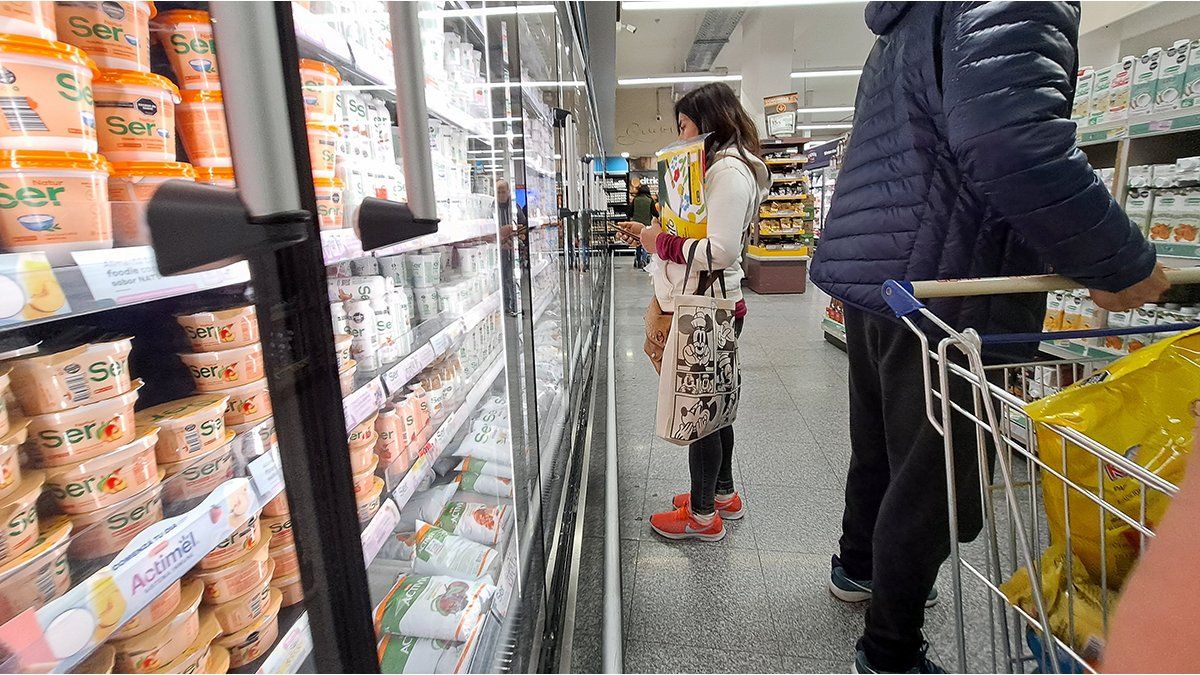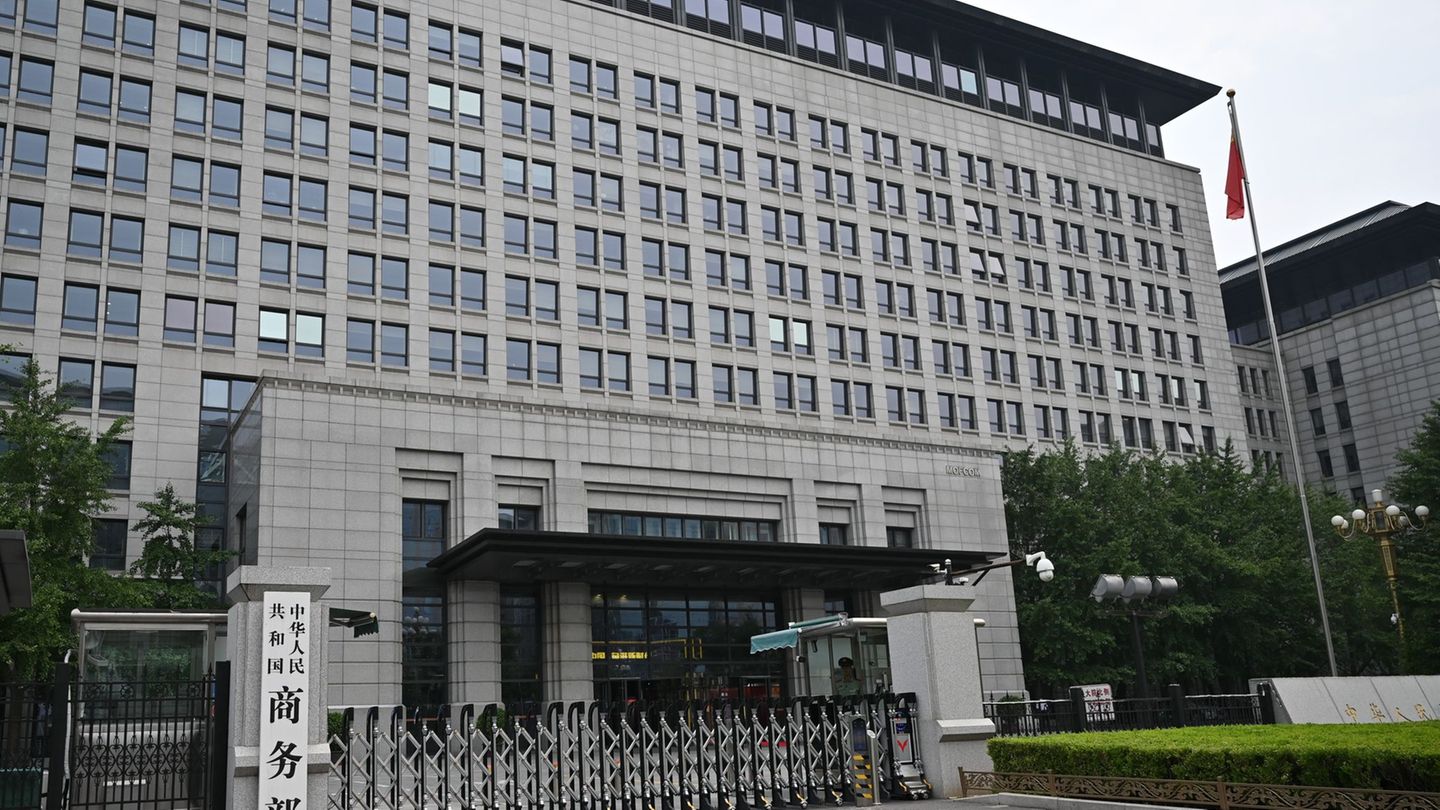This Wednesday, the INDEC will release the data on inflation August, a month marked by devaluation of the official exchange rate after the PASO and the volatility in alternative dollars. So different consulting companies have already announced that a double-digit variation is expected in the CPI of last month. Which, in addition, will leave a “Raised floor” for September.
In fact, if private forecasts come true, monthly inflation in August would be the highest since 1991.: Estimates from the different surveys are around 11%, although some surveys place the figure above 12%.
In this scenario, the consulting firm LCG analyzed: “On a nominal value that navigated a floor of 6.5%-7% monthly inflation, the 22% devaluation ordered by the BCRA was set up. Despite this, the exchange gaps did not manage to compress, but even deepened immediately, also pushing the rise of parallel exchange rates.”
Thus, the survey of food prices carried out by the firm indicated a monthly inflation of 10%. “Likewise, August had regulated price increases such as fuel, buses, schools, communications, among others, which would contribute about 2 pp to the general index.. Based on this, and assuming almost 50% passthrough in a context of high indexation, we estimate that August will mark inflation around 12% monthly (123% annual),” they detailed.
For its part, the Eco Go retail price survey recorded a “strong acceleration after the PASO”, to close the month with an increase of 11.5%, as indicated by the firm. “In August, food and beverage prices registered an increase of 12.7%, which represents a strong acceleration after the 7.3% captured by our survey in July. The largest increases occurred after the PASO and the devaluation in the third and fourth week of the month with increases of 4.8% and 5.8% weekly, record figures in the series (in the last six months, the increases were 1.7% weekly on average)”, they analyzed.
The CPI measured by the Libertad y Progreso Foundation registered a monthly increase of 10.7% in August (In July the firm had measured 6.6%, compared to the 6.3% reported by INDEC). “This result marks the highest monthly increase since March 1991, even surpassing the record of April 2002, in the midst of the exit from Convertibility. For its part, the interannual variation amounted to 120.8%. You have to go until September 1991 to find a record of that magnitude,” the firm explained. The “Food and non-alcoholic beverages” category showed an increase of 9.9%, with an impact of 2.3 pp on the index.
For its part, the S&T survey recorded an inflation of 11% for the GBA region (it had been 6.3% in July, the same figure as the INDEC). “Thus, the monthly variation exceeded the previous peak of 10.4% in April 2002, immediately after the exit of Convertibility, and equaled that of March 1991, the month before the start of said program. It should be noted that August is a favorable month from a seasonal point of view, since inflation usually moderates after the peak in July due to tourism,” the firm explained.
Meanwhile, for Ecolatina August inflation in the GBA was 11.2%, while for Orlando Ferreres it was 12.2%.
A raised floor for September
Consumption Inflation Price Basic Basket Supermarket
Analysts warn that the jump in inflation in August leaves a “high floor” for September
Mariano Fuchila
According to what Daniel Artana wrote in the publication “Indicators of Situation” of the FIEL Foundation, “the price estimate that FIEL makes for the City of Buenos Aires suggests that inflation for the month of August will be between 12% and 13%and since the CPI is measured for the average of the month, it is likely that a similar figure will be repeated in September due to the carryover effect of the second fortnight of a month on the average of the following month.
“The increase registered in the CPI during August generates a carry-over effect of more than 4 points for the September index. Assuming that there are no other shocks like in August, the dynamics of underlying inflation already brings us closer to double digits. Although the price freezes established by the government, which include fuel and transportation among others, will help temporarily moderate the index. But at the expense of continuing to accumulate repressed inflation,” said Eugenio Marí, Chief Economist of Libertad y Progreso.
“For September we expect a second month with double-digit monthly inflation. The drag of the second fortnight resulting from the shock caused by the surprising result of the PASO, together with a high pass-through of the recent discrete jump in the official exchange rate and the exacerbation of the uncertainty that this change of scenario brought with it, will imply that the dynamics of price increases remains high and unstable”, they detailed from Ecolatina.
Source: Ambito




